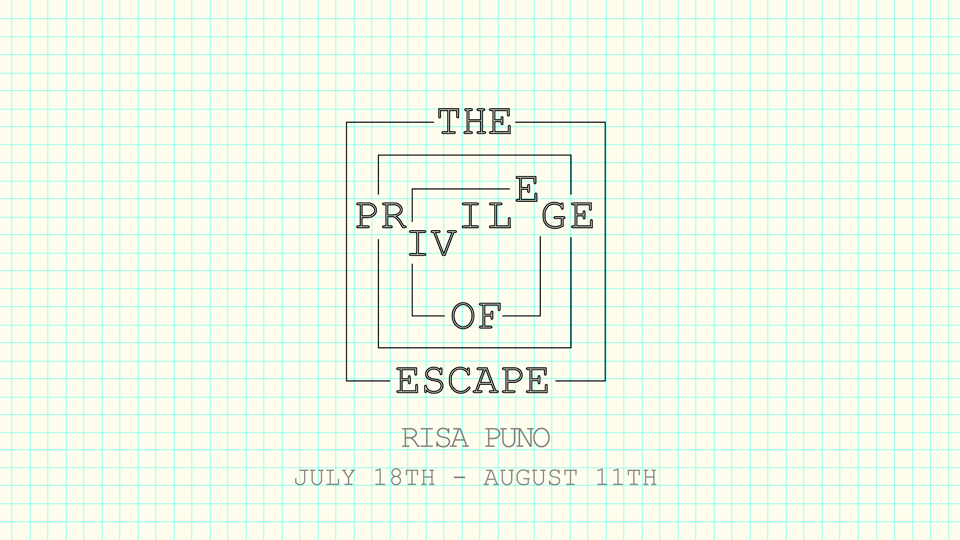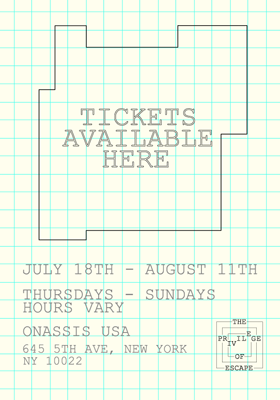Curatorial Statement
Games are built as social worlds, drawn from deeply simplified understandings of life. Chess, Risk, and Monopoly all pull from rudimentary and essentialized visions of war and economics. The aptly named Game of Life established a vision of a human lifespan consisting of normative social constructs including such milestones as home ownership and marriage. These games are all developed around carefully delineated rules that speak to a set way of doing things, while establishing a narrow path to victory.
Throughout her career, Risa Puno has employed games as a reflection of the world we live in. From a mini-golf course inspired by the range of human emotions to an obstacle course reflecting the challenges of living in New York City, Puno has found play to be a generative and poetic facsimile of social constructs. For The Privilege of Escape, she continues this line of inquiry by adapting the format of an escape room game to address issues of inequity and privilege. She takes advantage of the assumption that games are fair, when in fact they are often built on profoundly arbitrary rules that naturally favor the skills and understanding of some players over others.
In an escape room, you are locked in a room with the imperative that you must get out in an hour or less in order to achieve a grand objective, i.e. saving the world from nuclear disaster or evading a serial killer. To do so, puzzles must be solved and codes must be cracked. What is so potent about this structure, is that escape room participants by choice put themselves in these states of extreme duress. Even with the prior knowledge that the narrative is a complete construct, participants cannot help but feel a rush and panic as the clock runs down. Puno capitalizes on this. She heightens the feeling that some are better suited for the game than others—that some have the tools to escape, while others do not. Some can succeed, while others will be left behind.
This framework is built upon understood social systems that are accepted as norm, but serve some better than others. In life, we have structures in place that give undue advantages to some over others. In The Privilege of Escape, these systems come in the form of the traditional escape room tropes of conditions and hints.
The intention here is to envision our own game of life. The conditions that have formed the United States are built on white supremacy. Our societal structure privileges white male heteronomity, which has helped shape the rules of the American way of life. Accordingly, some are handed the map and tools that make the path easier.
When it comes to privilege and inequity, there is a need for deep systemic change. The first step is the acknowledgement that, in many ways, the game of life is rigged. For a truly equitable future, the rules must be revised in order to support collective success.
Puno’s The Privilege of Escape is not a solution to a problem. It is a challenge. We are each forced to contend with the personal question, “having described privilege, what will I do to lessen or end it?”
– Justine Ludwig
New York City
July 2019



